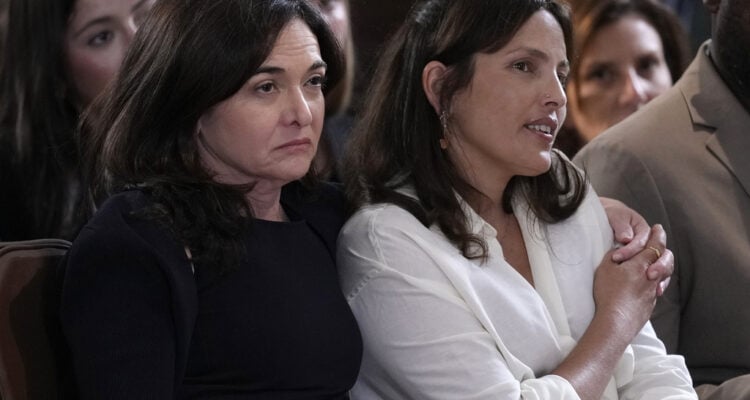Amit Soussana, one of the over 250 people abducted by Gaza terrorists on October 7th and the first to openly declare she was raped in captivity, speaks at White House event.
By World Israel News Staff
An Israeli woman raped by a Hamas terrorist during her time in captivity in the Gaza Strip spoke out Monday at the White House, during a special event marking the International Day for the Elimination of Sexual Violence in Conflict.
Amit Soussana, a 40-year-old attorney from the southwestern Israel town of Kfar Azza, was dragged from her home after Gaza terrorists overran Israeli border towns on October 7th. She was later released during the week-long ceasefire in November.
In late March, Soussana became the first ex-captive to publicly confirm that she was raped and tortured by her captor while being held hostage in Gaza.
Soussana provided The New York Times with details of the abuse and sexual assault she suffered beginning in late October, identifying the man who raped her as her captor, a man named Muhammad who held her prisoner in a child’s bedroom.
At Monday’s event in the White House, hosted by Vice President Kamala Harris, the film “Screams Before Silence,” a documentary about the rape and sexual mutilation of Israelis during and after October 7th, was screened.
Businesswoman and former Facebook/Meta COO Sheryl Sandberg, who helped produce the film and appeared in it, also attended Monday’s event, sitting next to Soussana.
During her White House speech, Soussana recalled her feelings of helplessness in captivity as she suffered sexual abuse and torture.
“If someone had told me a few months ago while I was sitting in a dark room in Gaza tied up by my ankle and unable to move that I would be standing here today before you all, I would have thought that they were out of their mind,” Soussana said.
“Being in captivity means having no control over your mind, body or soul. You have absolutely no control over what happens to you. All your basic human rights are taken from you. Even your feelings are completely controlled by someone else.
“Back then, I had no voice, no choice. I had no control whatsoever over my own life. I knew that my home and the people that I love were so close to me — just a few minutes drive from where I was being held. Yet they felt so far and out of reach. I feared that I would never get to see them again. I thought that I would never return home.”





